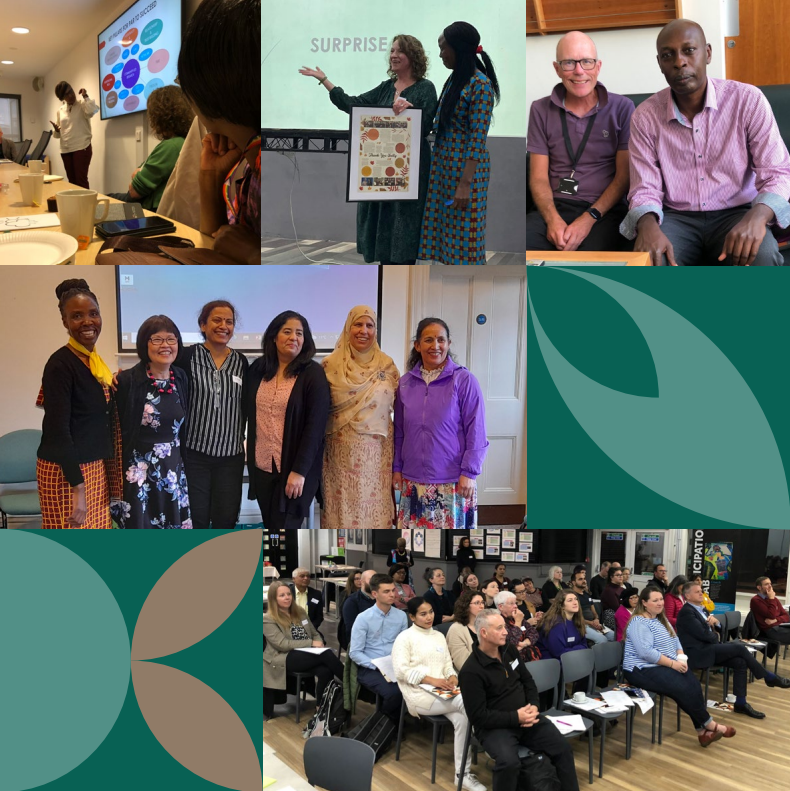What we do
The story of Participatory Action Research in Reading
Centred around the notion that communities themselves have the skills and expertise to best understand local needs through their lived experiences, PAR seeks to disrupt traditional power relations between researchers and the researched by locating knowledge generation at the local level and enable communities to explore and action issues that matter most to them. — Dr Sally Lloyd-Evans, Public Engagement with Community Research Fellow at the University of Reading
Building on the University’s existing strengths in participatory research and community engagement, our current journey began with the Whitley Researchers collective in 2014, a collaboration with the Whitley Community Development Association, and subsequent launch of the Participation Lab in 2016.
Since then, the team has grown and carried out many more projects using Participatory Action Research (PAR) methods, which have engaged different stakeholders as equal partners to address the issues that matter to grassroots communities.
PAR attempts to move away from identifying and theorising the problems of ‘others’ towards engaging communities in co-producing their own knowledge to bring about social action. Based on ideas of equal power, collaboration, and community action, it centres on the notion that communities themselves have the skills and expertise to best understand local needs through their lived experiences.

A collection of images from the Participatory Action Research (PAR) Toolkit (2023)
PAR seeks to disrupt traditional power relations between researchers and the researched by locating knowledge generation at the local level and enabling communities to explore and action issues that matter most to them. The use of participatory methods helps to break down barriers between communities and services providers and it is this community-centred approach that creates and strengthens the relationships and trust that are foundational to lasting social change. This hopefully gives more control to the people who are actually living the experience, and their engagement with pinpointing problems and finding solutions ensures that projects and their impact are relevant and hopefully sustainable into the long term. Participatory methodologies are becoming increasingly popular in addressing social justice issues as they attempt to democratise the research process, bring new voices to the table and challenge traditional power relations.
In particular, since the Covid-19 pandemic, policymakers and research funders are increasingly advocating the use of coproduced and participatory methods, but there is a lack of understanding of what it takes to do this research and the challenges that different partners and participants might face. As a result, local organisations, communities, and academic researchers are calling for some reflection on the lived experiences of ‘doing PAR’ that highlights the challenges as well as the opportunities.
